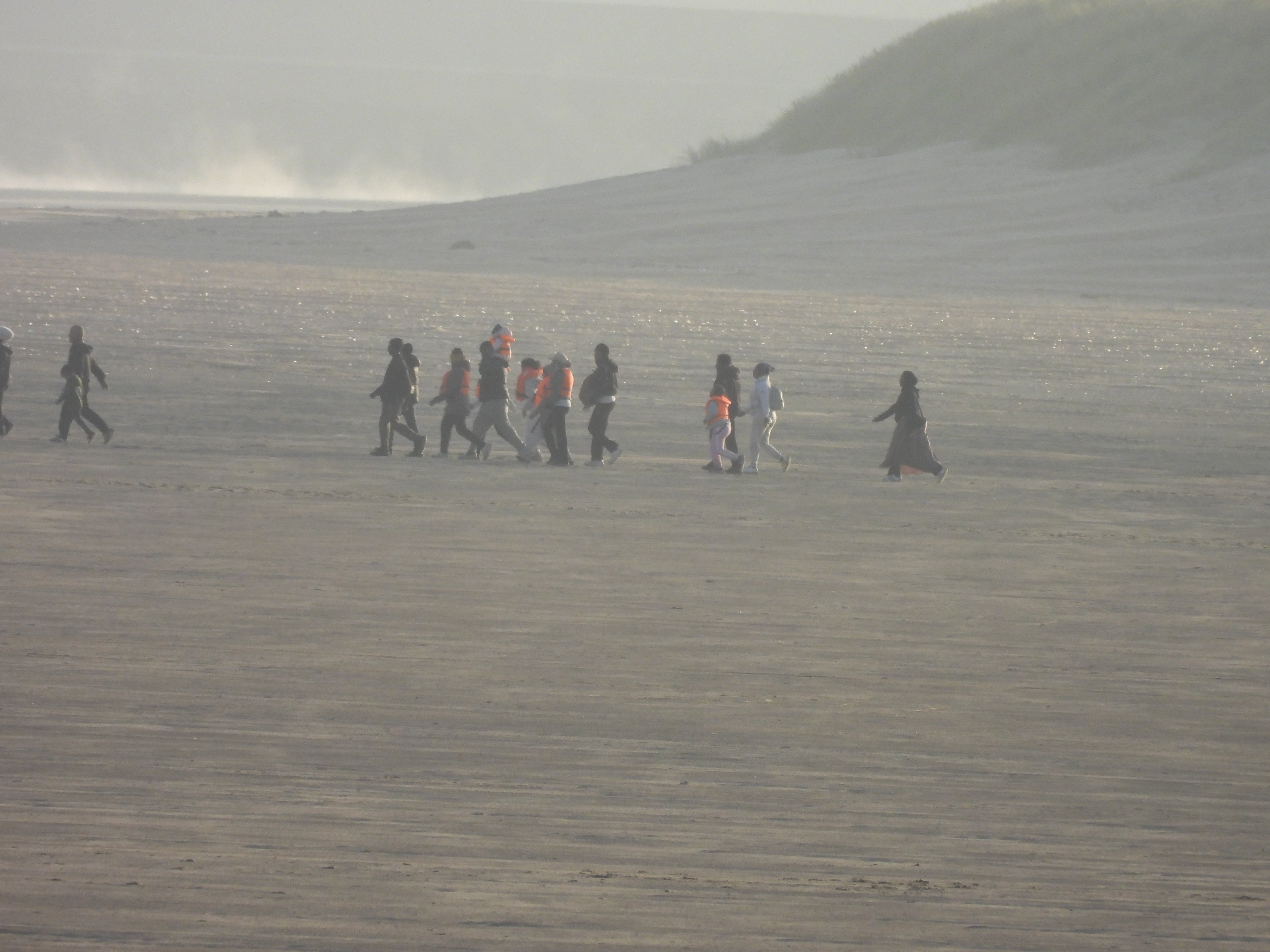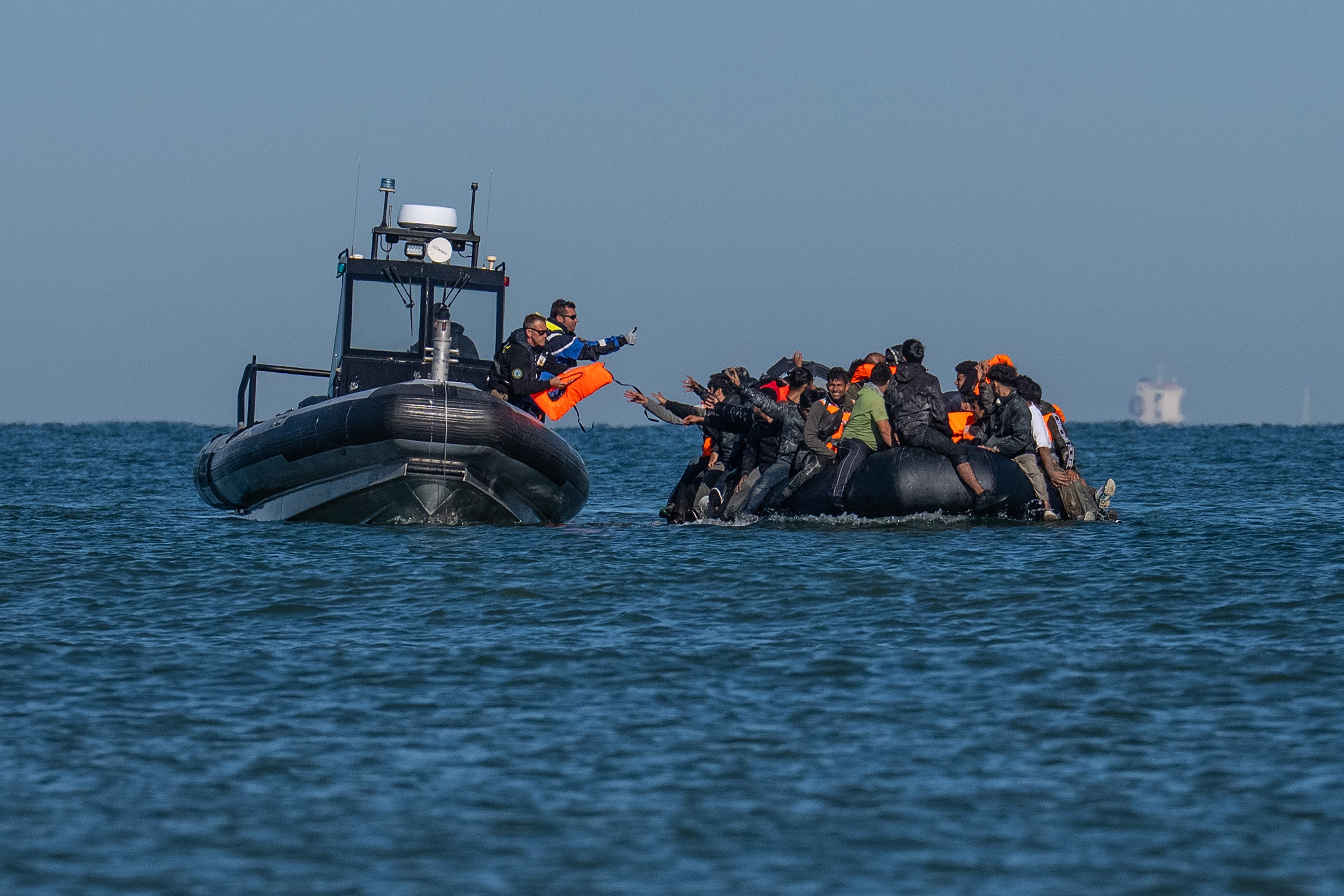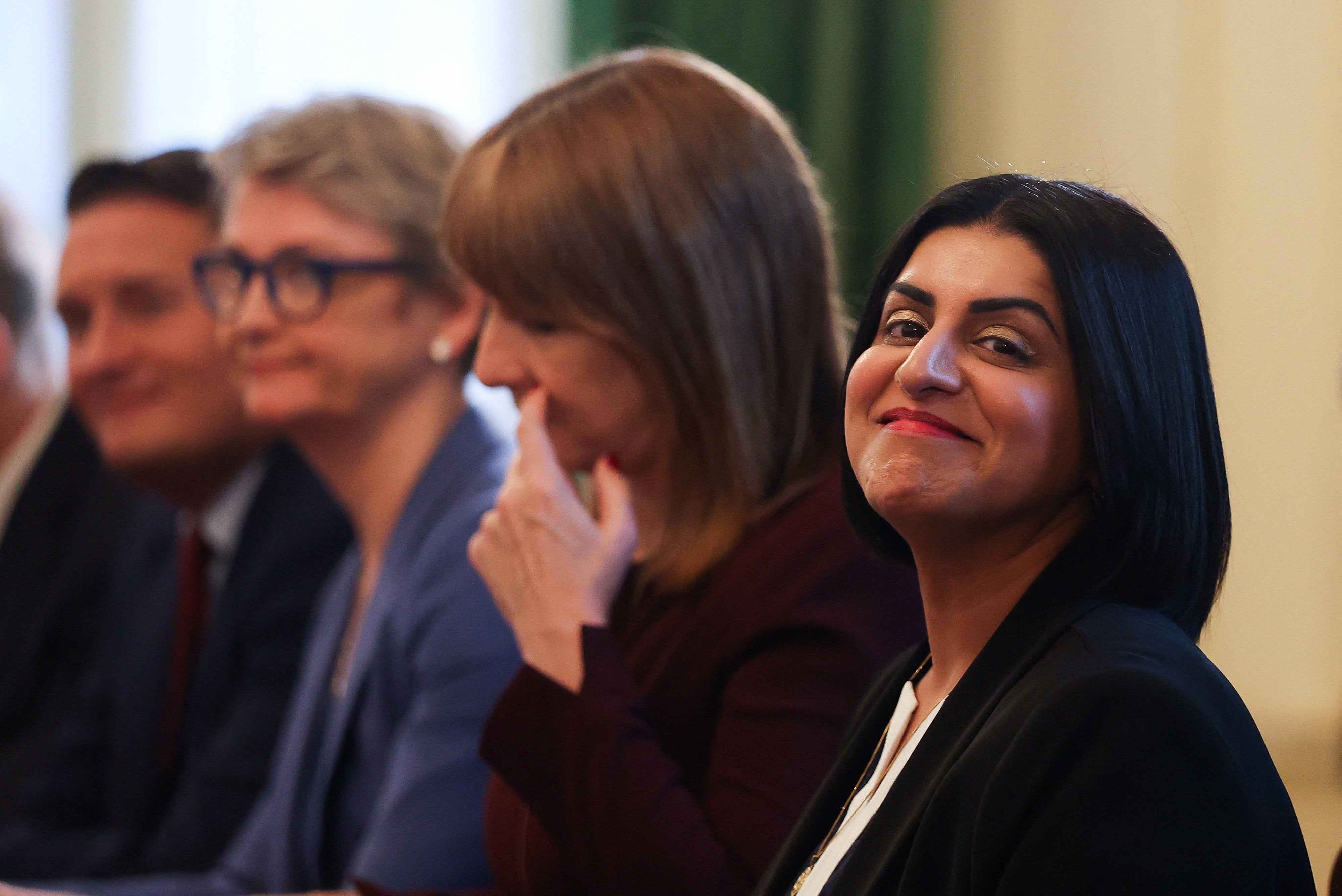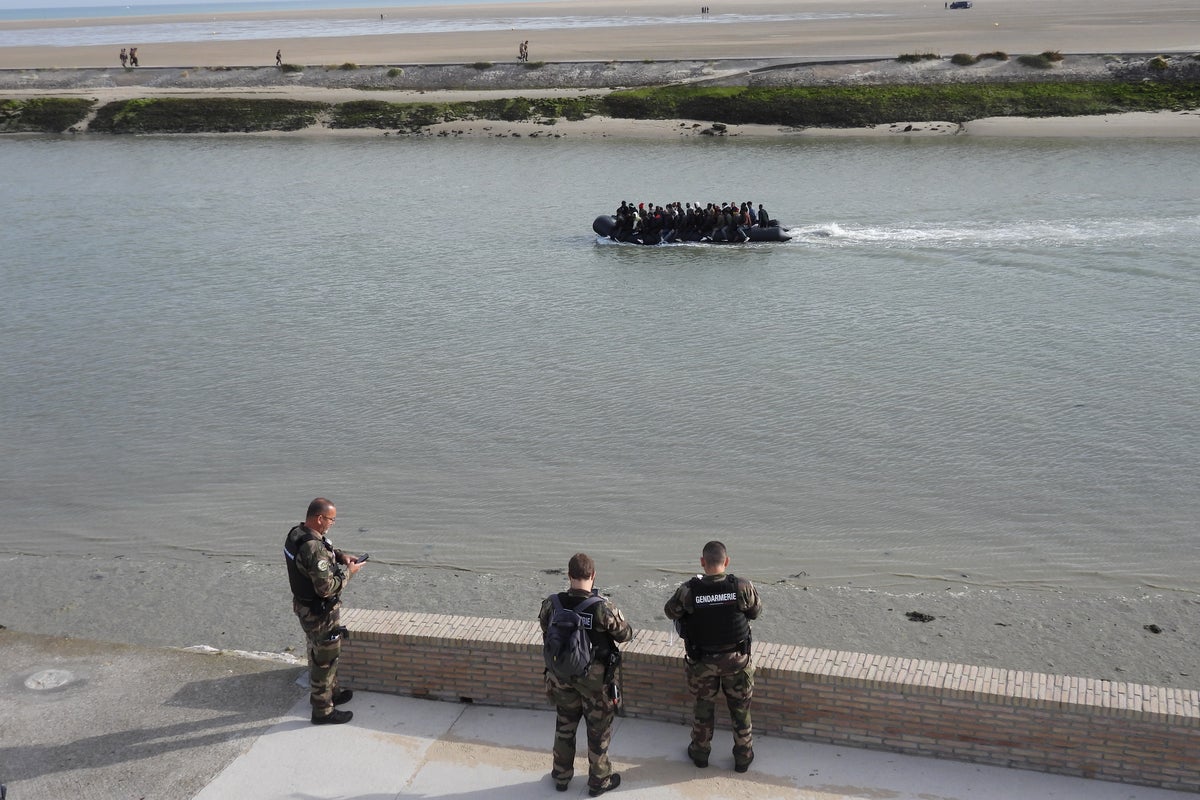It was around 7.45am when the first small boat appeared. The sun was rising above Gravelines, a coastal town that lies at the mouth of the River Aa between Calais and Dunkirk. It was the first calm day in more than a week.
Three military reservists, in khaki uniforms and black vests bearing the word “Gendarme” – officers salaried by the UK – had been standing on the riverbank a couple of hundred metres from where the waterway opens onto the English Channel. They were alerted to the vessel by a passing jogger.
It was just a speck on the river in the distance at first, but it soon came close enough to reveal it was an inflatable raft with around a dozen young men on board.
One of the three military reservists watched the inflatable through his binoculars as it sailed past them. Another started typing something on his phone. The officers then began marching along the riverbank behind the boat – but this did nothing to deter those on board.
At this point, people started to appear on the huge expanse of Gravelines beach ahead, walking, some running, towards the coastline. Mostly men at first, then women and small children.

In a town at the top of the beach, a handful of police officers – probably also salaried with UK money – were trying to stand in the way of one group. But faced with more than a dozen people making a beeline for the sea, it was an impossible task.
Soon enough, those on the beach were wading into the water towards the vessel to join the existing passengers. It quickly became overcrowded.
A helicopter appeared and hovered low around the vessel, but people continued to board. A gendarmerie boat arrived and attempted to block some from boarding, but without endangering the lives of people on the overloaded boat, it was clear that nothing could be done to stop them.
By 9.30am, the boat was sailing towards Dover.
Over the next hour, another dinghy made its way up the river, this time with about 25 people on board, and the same process played out. About an hour after that, another boat appeared and picked up more people from the beach, before sailing towards the UK.
That same day, 17 small boats made it to the UK, with 1,097 people on board. The British press was dominated by headlines decrying yet another record for Channel crossings, with total arrivals so far this year under Labour exceeding 30,100.

Shabana Mahmood, who was appointed as home secretary just 48 hours earlier, described the numbers as “utterly unacceptable” and pledged to “explore all options to restore order”.
Her words are all too familiar. There’s been a string of announcements by UK ministers in recent years promising to curb the crossings – but to no avail.
Sir Keir Starmer’s government has pledged more beach patrols, enhanced surveillance technology and new specialist intelligence units in the past year alone.
Huge sums of British money have been handed to France to tackle the issue, with around £476m committed for the period 2023-25.
The funds have been spent on, among other things, the deployment of hundreds of gendarme reservists, helicopters and quadbikes – all of which were out in full force at Gravelines over the weekend. Yet they proved able to do nothing to prevent the departures.
So far, all there is to show for the funds and initiatives aimed at stopping the boats are more arrivals and a higher rate of death, as demonstrated by the record number of fatalities recorded last year. This week alone, four people have died attempting the journey, including a woman and two children.
While French police succeed in preventing some crossings, usually by destroying boats before they reach the water, this has led to more people cramming onto each boat that does make it into the water, placing people at higher risk.
Yet the pursuit of tougher tactics continues. Under pressure from the UK, France announced earlier this year that border police, gendarmes and coastguard vessels would intercept small boats within 300 metres of the coast. How such interceptions can work without placing people on board at severe risk is unclear.
One gendarme standing by the edge of the river on Saturday morning, as the boats passed, told me that the change would put lives at risk. “These are overloaded boats, people would panic, and then what?” he said with raised eyebrows. “And who would be held responsible? The police officers carrying out the manoeuvre, not the state.”
He didn’t think it would be effective at bringing an end to the problem either, hinting that smugglers would simply find ways around it.
Ministers also recently announced the so-called “one in, one out” deal, under which small boat arrivals will be returned to France in return for the UK taking the same number of migrants from France.
But only 50 people each week are actually expected to be returned under the scheme, and anyone without documents – such as most Sudanese nationals, for example – will not be eligible to apply for the legal route.

Both initiatives, to be carried out properly, would also no doubt be hugely costly, requiring yet more taxpayer funds from both Britain and France: for more French police boats, more detention capacity in the UK, not to mention the cost of transporting people across the Channel in both directions under the returns deal.
And even with all this, the chances of these new plans succeeding in deterring people from trying to cross and – in the case of the interceptions – managing to do this without putting lives in considerable danger, are slim to none.
Ali, a young Sudanese man residing in Calais, has attempted the journey by small boat twice. He told me one attempt failed due to poor weather, and the other due to the “captain” taking the boat in the wrong direction.
He explained that he had been hoping to stay in France, but his asylum claim here was recently rejected. The EU’s Dublin policy means that any attempt to claim asylum in another EU country will not be successful, so he now sees the UK as his only hope.
When asked if he thinks anything would put him and others off from making the journey, Ali shrugged. “If the UK sends me back to France, then OK. But then what? Will France send me back to Sudan?
“I see the drones and all the things that the UK buys for France. So much money, but it makes no difference. When you have no other option, like me, what else can we do?”
Witnessing the scene at Gravelines on Saturday morning, it was clear that the UK taxpayers’ money thrown at trying to stop people like Ali from making the journey has been in vain. It was also evident that any future attempts to bolster security and introduce tougher tactics will, like all those before them, fail to deter and serve only to further endanger lives.
As one of the gendarmes said, just as the second boat left for the white cliffs of Dover: “People have been going from here to the UK irregularly for the last 30 years. It isn’t going to stop now.”




